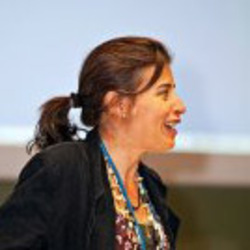
In this course, we will teach category theory from first principles with an eye towards its applications both to the theory of functional programming languages as well as to its use in the semantics of natural language. For the latter weconsider especially the approach to the syntax semantics interface known as Glue Language, but we do not expect to cover these applications in any detail.
NOTE: Ulrik Buchholtz, who was due to co-teach this class, has unfortunately had to cancel his trip to Austin.
We expect students to have some level of mathematical maturity and to like algebraic structures, but only superficial contact with discrete mathematics, notions of logic and functional programming will be required.
We will go over some of the material in J. Gallier's Constructive Logics. Part I: A Tutorial on Proof Systems and Typed lambda-Calculi. Theoretical Computer Science, 110(2), 249-239 (1993). Available from: http://www.cis.upenn.edu/~jean/gallier-old-pubs.html
Other suggested reading will be posted at http://logic-forall.blogspot.com/
Valeria de Paiva |
Email: valeria (DOT) depaiva (AT) gmail (DOT) com
Homepage: http://www.cs.bham.ac.uk/~vdp/
Bio:Valeria de Paiva is a mathematician, logician and computer scientist based in Cupertino, CA. She works as senior research scientist at Rearden Commerce, Foster City, CA, using logic to improve e-commerce tools. Before that she was a research scientist at the Intelligent Systems Laboratory of PARC (Palo Alto Research Center), CA for many years (2000-2008) and a search analyst at Cuil, Inc. in Menlo Park, CA till 2010. She received her PhD in Mathematics from Cambridge University in 1988 for work on "Dialectica Categories", under Martin Hyland's supervision, and has ever since worked on logical approaches to computation, especially using Category Theory. She is on the editorial boards of "Theoria and Application of Categories", "Logical Methods in Computer Science" and of "Logica Universalis", as well as in the editorial board of the Springer series of books "Logic, Language and Information". She's an Honorary Research Fellow at the School of Computer Science, University of Birmingham, UK and taught recently at Stanford University and Santa Clara University.
|